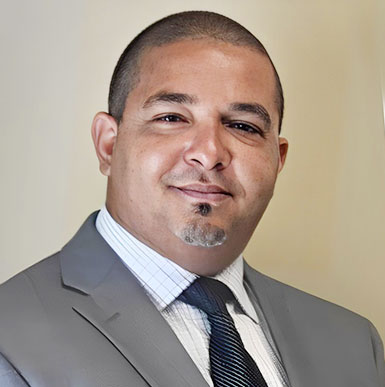A personal injury lawyer protects your legal rights and helps you get compensation when you’ve been injured due to someone else’s negligence. They’ll evaluate your case, gather evidence like medical records and witness statements, and develop a strong legal strategy. Your lawyer will handle all communications with insurance companies, negotiate settlements on your behalf, and prepare your case for trial if needed. They’ll analyze your medical documentation, calculate damages, and guarantee you receive fair compensation for medical bills, lost wages, and pain and suffering. Understanding the full scope of what personal injury lawyers do can help you make informed decisions about your case.
Initial Case Evaluation

When a potential client first contacts a personal injury lawyer, the attorney conducts a thorough evaluation to determine the case’s viability and merit. During this initial consultation, you’ll discuss the accident’s circumstances, your injuries, medical treatments, and any documentation you’ve gathered. The lawyer will assess liability, potential damages, and the strength of available evidence.
You’ll need to provide detailed information about the incident, including dates, locations, witnesses, and any communication with insurance companies. The attorney will explain relevant laws, statute of limitations, and how they apply to your situation. They’ll also outline their fee structure, typically working on a contingency basis where they only get paid if you win.
During this evaluation, the lawyer will help set realistic client expectations regarding potential compensation and the case timeline. They’ll explain the legal process, possible challenges, and strategies to pursue your claim.
If they decide to take your case, they’ll establish clear communication protocols and outline the next steps, including gathering additional evidence, consulting experts, and developing an extensive legal strategy for your claim.
Evidence Collection and Documentation
Personal injury lawyers launch extensive evidence-gathering efforts immediately after accepting your case. They’ll collect police reports, medical records, and witness statements to build a strong foundation for your claim.
Their team will photograph accident scenes, property damage, and visible injuries to create compelling photographic evidence that supports your version of events.
Your lawyer will secure surveillance footage, if available, and gather employment records to document lost wages. They’ll also obtain expert opinions from medical professionals, accident reconstructionists, and other specialists who can validate your claim.
These experts provide vital testimony about the extent of your injuries, long-term implications, and the accident’s mechanics.
Throughout this process, your attorney maintains detailed documentation of all evidence collected. They’ll organize medical bills, correspondence with insurance companies, and incident reports in a systematic manner.
Your lawyer will also track your recovery progress through medical assessments and rehabilitation records. This thorough documentation helps establish the full scope of your damages and strengthens your negotiating position.
If your case goes to trial, this well-organized evidence becomes essential for presenting a compelling argument to the jury.
Legal Strategy Development

Once your lawyer has gathered substantial evidence, they’ll develop an extensive legal strategy customized to your case’s unique circumstances. Your attorney will analyze every aspect of your case to formulate effective legal tactics that maximize your chances of success.
This process involves careful consideration of applicable laws, precedents, and potential challenges that might arise during litigation.
Your lawyer’s case strategy typically encompasses several key components:
- Determining the most advantageous legal theories to support your claim and identifying potential weaknesses in the opposing party’s defense
- Calculating a realistic compensation amount based on your damages, including medical expenses, lost wages, and pain and suffering
- Planning the timing and sequence of legal actions, from filing deadlines to settlement negotiations
- Preparing contingency plans for various scenarios that might unfold during the legal proceedings
Throughout this process, your attorney will adjust their legal tactics based on new evidence, the opposing party’s responses, and any changes in circumstances that could affect your case.
They’ll also guarantee you understand each strategic decision and its potential impact on your case’s outcome.
Negotiations With Insurance Companies
You’ll need to carefully document every detail of your insurance claim, including medical records, accident reports, and related expenses before entering negotiations.
Once you’ve assembled your documentation, you can effectively evaluate settlement offers by comparing them against similar cases and your actual damages.
When insurers present low-ball offers, you’ll counter with well-supported demands backed by concrete evidence and clear calculations of your losses.
Documenting Insurance Claim Details
When negotiating with insurance companies, careful documentation of claim details becomes essential for building a strong personal injury case. Your attorney will help you maintain detailed claim documentation that strengthens your position during settlement talks.
This includes organizing all insurance paperwork, medical records, and correspondence in a systematic manner that clearly demonstrates liability and damages.
You’ll need to work closely with your lawyer to guarantee all critical details are properly recorded and preserved. Your attorney will create an extensive file that tracks:
- All medical treatments, procedures, and related expenses from the date of injury
- Documentation of lost wages, including pay stubs and employer statements
- Photos, videos, and other evidence showing property damage or injury progression
- Detailed records of all communications with insurance adjusters, including dates, times, and discussion points
Evaluating Settlement Offers
Strong documentation sets the foundation for the next major phase of your personal injury case: evaluating settlement offers from insurance companies. Your attorney will carefully analyze each offer to determine settlement fairness based on multiple factors, including your medical expenses, lost wages, future treatment needs, and non-economic damages like pain and suffering.
During the offer evaluation process, your lawyer will compare the proposed amount against similar cases and verdicts in your jurisdiction. They’ll assess whether the settlement adequately covers both your current and anticipated future losses.
Your attorney will also consider the strength of your evidence, liability factors, and the potential risks of proceeding to trial.
If an initial offer is inadequate, your lawyer will prepare a detailed counteroffer supported by evidence from your case file. They’ll negotiate strategically with insurance adjusters, highlighting key factors that justify a higher settlement amount.
Throughout this process, your attorney will keep you informed of all offers and provide professional recommendations, while ensuring you maintain the final decision-making authority on whether to accept or reject any settlement proposal.
Countering Low-Ball Offers
Insurance companies frequently present initial settlement offers that fall well below a claim’s actual value, requiring your attorney to mount a strategic counter-response. Your lawyer will analyze the initial offer and develop effective negotiation tactics to secure fair compensation. Through detailed counteroffers analysis, they’ll identify specific areas where the insurance company’s valuation falls short.
Your attorney will strengthen your position by:
- Presenting thorough medical documentation that clearly demonstrates the full extent of your injuries and long-term implications
- Calculating and documenting all current and future economic losses, including lost wages, medical expenses, and rehabilitation costs
- Highlighting specific liability factors that strengthen your case, including police reports, witness statements, and expert testimonies
- Demonstrating precedent cases with similar circumstances and their settlement values
When countering low-ball offers, your lawyer will maintain professional yet firm communication with insurance adjusters, systematically addressing each point of contention.
They’ll leverage their experience to recognize common insurance company tactics and respond with well-documented evidence supporting your claim’s true value. This methodical approach often leads to meaningful negotiations that can result in substantially improved settlement offers.
Filing Legal Documents

Filing legal documents represents a critical responsibility that personal injury lawyers must handle with careful attention to detail and strict adherence to court deadlines. Your attorney must expertly manage multiple document types, including complaints, motions, responses, and discovery requests, while maintaining precise document organization throughout your case.
Your lawyer will ascertain all paperwork meets specific formatting requirements and contains accurate information about your injury claim. They’ll track filing deadlines vigilantly, as missing one could seriously compromise your case or even result in dismissal.
The documentation process includes preparing summons, drafting legal briefs, filing court petitions, and submitting evidence exhibits. Additionally, your attorney must properly serve these documents to opposing parties and maintain proof of service.
They’ll create detailed records of all filed documents, including timestamps and confirmation receipts. Modern law firms often utilize specialized software to manage digital filing systems and court e-filing portals.
Your lawyer will also handle document requests from insurance companies, medical providers, and other involved parties while making sure all sensitive information remains protected under attorney-client privilege.
Client Communication and Updates
A personal injury lawyer’s commitment to client communication involves providing you with consistent updates about your case status and important developments.
You’ll receive clear explanations of complex legal processes, including court procedures, settlement negotiations, and timeline expectations.
Your attorney should promptly address your questions and concerns, ensuring you’re fully informed about your case’s progress and any decisions requiring your input.
Regular Case Status Updates
Regular communication with clients stands as one of the most essential responsibilities of personal injury lawyers. They’ll guarantee you’re always informed about your case progress and know what to expect at each stage of the legal process.
Your attorney should provide clear, timely updates about significant developments, court dates, and settlement negotiations.
A professional personal injury lawyer maintains consistent contact through various communication channels to meet client expectations and keep you informed about:
- Documentation status, including medical records, police reports, and expert testimonies that have been collected or are still needed
- Settlement offers received from insurance companies or opposing parties, along with detailed explanations of their implications
- Upcoming deadlines, court appearances, or mediation sessions that require your attention or participation
- Changes in case strategy or potential obstacles that might affect your claim’s timeline or outcome
Your lawyer should establish a regular update schedule, whether weekly, bi-weekly, or monthly, depending on your case’s complexity and activity level.
They’ll also respond promptly to your questions and concerns, guaranteeing you’re never left wondering about the status of your legal matter.
Explaining Legal Processes
Because legal proceedings can seem overwhelming to those unfamiliar with the justice system, personal injury lawyers must break down complex legal processes into understandable terms for their clients. Your attorney will explain legal terminology and case timelines in clear, straightforward language, ensuring you’ll grasp each phase of your case.
| Phase | Legal Term | What It Means for You |
|---|---|---|
| Filing | Complaint | Your official document stating why you deserve compensation |
| Discovery | Interrogatories | Written questions you’ll answer about your case |
| Negotiation | Settlement Demand | The amount you’re seeking from the responsible party |
| Trial | Litigation | Your day in court if settlement talks fail |
Your lawyer won’t just explain what’s happening – they’ll help you understand why each step matters. They’ll walk you through vital deadlines, document requirements, and potential outcomes at every stage. When you receive legal documents, your attorney will translate complex jargon into plain English, helping you make informed decisions about your case. You’ll learn about depositions, mediation procedures, and courtroom protocols, ensuring you’re prepared for each phase of the legal process.
Responding to Client Concerns
Professional personal injury lawyers prioritize clear, consistent communication with their clients throughout the legal process. They understand that you’ll have questions, concerns, and uncertainties about your case. Your attorney’s role includes managing client expectations while providing necessary emotional support during challenging times.
Your lawyer should maintain regular contact through various communication channels, guaranteeing you’re informed about case developments, deadlines, and important decisions. They’ll address your concerns promptly and explain complex legal concepts in understandable terms.
Key aspects of client communication include:
- Providing regular case status updates through phone calls, emails, or scheduled meetings
- Explaining potential outcomes and settlement options with realistic timelines
- Offering guidance on medical treatment decisions and documentation requirements
- Addressing questions about legal fees, expenses, and financial concerns
When responding to your concerns, your lawyer should demonstrate empathy while maintaining professional boundaries.
They’ll help you understand the strengths and weaknesses of your case, guide you through critical decisions, and guarantee you’re prepared for each stage of the legal process. This balanced approach helps build trust and keeps you informed throughout your personal injury claim.
Medical Record Analysis

A thorough analysis of medical records forms the cornerstone of any personal injury case. Your attorney will conduct a detailed medical history review to establish the direct connection between the accident and your injuries. They’ll examine pre-existing conditions, prior treatments, and any factors that could affect your claim’s validity.
During this process, your lawyer will identify all healthcare providers involved in your treatment, ensuring no medical documentation is overlooked. They’ll analyze emergency room reports, diagnostic tests, surgical records, and follow-up care notes to build a clear picture of your injury’s progression.
Through treatment impact assessment, they’ll determine how your injuries have affected your daily life, work capabilities, and long-term health prospects. Your attorney will also work with medical experts to interpret complex terminology and identify any inconsistencies or gaps in the documentation.
They’ll evaluate whether your treatment was appropriate and necessary, calculating both current and future medical expenses. This detailed analysis helps establish the full extent of your damages and strengthens your position during settlement negotiations or court proceedings.
Settlement Negotiations
Skilled personal injury lawyers leverage your medical documentation to initiate strategic settlement negotiations with insurance companies and opposing counsel.
They’ll employ proven settlement tactics to maximize your compensation while protecting your legal interests throughout the process.
Your attorney will develop effective negotiation strategies by:
- Calculating the full value of your claim, including current and future medical expenses, lost wages, pain and suffering, and other damages
- Preparing detailed settlement demand letters that outline liability, damages, and supporting evidence
- Countering lowball offers with compelling arguments and documentation
- Managing all communication with insurance adjusters to prevent them from using your statements against you
During negotiations, your lawyer will keep you informed of all settlement offers while providing expert guidance on whether to accept, reject, or counter each proposal.
They’ll anticipate and address common defense tactics, such as disputed liability or allegations of pre-existing conditions.
If the opposing party won’t offer fair compensation through negotiations, your attorney will be prepared to take your case to trial, using the groundwork laid during settlement discussions to strengthen your position in court.
Trial Preparation and Representation

Your personal injury lawyer will carefully gather evidence and conduct extensive legal research to construct your case’s foundation.
They’ll develop compelling legal arguments by analyzing precedents, expert testimonies, and relevant statutes that support your position.
In court, your attorney will execute a strategic plan that includes effective jury selection, persuasive opening statements, skilled witness examinations, and powerful closing arguments to maximize your chances of success.
Gathering Evidence and Research
Once a personal injury case moves in the direction of litigation, gathering evidence becomes a critical phase of trial preparation. Your lawyer will carefully collect and analyze various forms of evidence to build a compelling case. This includes obtaining witness statements, securing expert testimonies, and documenting all aspects of your injury and its impact on your life.
During the research phase, your attorney will investigate similar cases and relevant legal precedents that could strengthen your position. They’ll review medical records, accident reports, and surveillance footage while also consulting with experts who can provide professional insights into your case.
Key elements of the evidence-gathering process include:
- Collecting physical evidence from the accident scene, including photographs, videos, and any objects related to the incident
- Obtaining medical documentation, treatment records, and expert opinions about your injuries and recovery prognosis
- Securing witness statements and identifying potential expert witnesses who can testify about technical aspects of your case
- Gathering documentation of financial losses, including medical bills, lost wages, and other injury-related expenses
This thorough approach guarantees you’ll have the strongest possible evidence to support your claim in court.
Building Strong Legal Arguments
A successful personal injury case hinges on developing compelling legal arguments that connect evidence to established laws and precedents. Your attorney will employ various legal argumentation techniques to construct a solid foundation for your case, ensuring each claim is supported by concrete evidence and relevant legal standards.
| Strategy | Purpose | Impact |
|---|---|---|
| Case Law Analysis | Identify precedents | Strengthens legal basis |
| Fact Integration | Connect evidence to claims | Validates arguments |
| Counter-Arguments | Address opposing views | Demonstrates preparation |
| Damage Calculations | Quantify compensation | Justifies demands |
| Expert Testimony | Support technical claims | Adds credibility |
Your lawyer’s persuasive writing skills come into play when drafting legal briefs, motions, and settlement demands. They’ll craft arguments that clearly demonstrate liability, causation, and damages while anticipating and addressing potential defense strategies. This includes developing compelling narratives that explain complex legal concepts to judges and juries in accessible terms.
Throughout trial preparation, your attorney will refine these arguments through mock trials, focus groups, and careful analysis of similar cases. They’ll also prepare you and other witnesses to effectively communicate key points that support the overall legal strategy.
Courtroom Strategy and Advocacy
When preparing for trial, personal injury lawyers develop thorough courtroom strategies that encompass everything from jury selection to closing arguments. Their persuasive advocacy skills come into play as they carefully craft presentations that’ll resonate with both judge and jury.
Your lawyer will employ specific courtroom tactics designed to present your case in the most compelling way possible. This includes managing evidence presentation, witness preparation, and anticipating opposing counsel’s strategies. They’ll also develop contingency plans for unexpected developments during trial.
Key elements of effective trial representation include:
- Creating clear, convincing opening statements that establish the foundation of your case
- Implementing strategic witness examination techniques to elicit favorable testimony
- Using visual aids and demonstrative evidence to help jurors understand complex concepts
- Delivering powerful closing arguments that tie together all evidence and reinforce key points
Throughout the trial, your attorney will adapt their strategy based on jury reactions, opposing counsel’s moves, and the judge’s rulings.
They’ll maintain professional composure while aggressively advocating for your interests, ensuring your case receives the strongest possible representation in court.
Damages Calculation and Recovery
Personal injury lawyers must accurately calculate and pursue various types of damages to secure fair compensation for their clients. They’ll analyze both economic and non-economic damages types, including medical expenses, lost wages, pain and suffering, and potential future losses.
Your attorney will gather medical records, employment documents, and expert testimonies to establish a thorough value for your claim.
Recovery methods involve strategic negotiations with insurance companies and, when necessary, litigation. Your lawyer will document all damages through detailed financial records, medical assessments, and expert evaluations. They’ll calculate current losses while projecting future expenses, such as ongoing medical care or reduced earning capacity.
This process requires expertise in actuarial tables, medical cost projections, and economic analysis.
Your attorney will also identify additional damages you mightn’t have considered, such as emotional distress, loss of consortium, or property damage. They’ll employ various recovery methods, from demand letters and settlement negotiations to court judgments and liens.
Throughout this process, they’ll guarantee all calculations meet legal standards and are properly documented to withstand challenges from opposing counsel or insurance adjusters.
Frequently Asked Questions
How Long Does a Personal Injury Lawsuit Typically Take to Resolve?
Your personal injury lawsuit timeline typically ranges from 6 months to 2 years, though complex cases can take longer.
Case resolution depends on several factors: the severity of your injuries, insurance company cooperation, and whether you’ll need to go to trial.
If you settle out of court, you’ll reach resolution faster, usually within 6-12 months.
However, if your case goes to trial, expect a timeline of 12-24 months or more.
What Percentage of Personal Injury Cases Actually Go to Trial?
You might be surprised to learn that only 4-5% of personal injury cases actually make it to trial.
Trial statistics reveal that the vast majority (95-96%) of cases are settled before reaching the courtroom.
These case outcomes aren’t coincidental – most parties prefer to avoid the uncertainty and expense of a trial.
While you’ll hear dramatic courtroom stories, the reality is that your personal injury case will likely be resolved through negotiations and settlement discussions.
Can I Switch Personal Injury Lawyers in the Middle of My Case?
Yes, you can switch personal injury lawyers during your case.
It’s your legal right to choose your representation at any time.
However, consider the case implications before switching lawyers, as your former attorney may place a lien on your settlement for work already completed.
When switching lawyers, guarantee a smooth shift by having your new attorney handle the transfer of files and notify all relevant parties of the change.
Do Personal Injury Lawyers Handle Workers’ Compensation Cases Too?
While some personal injury lawyers handle workers’ compensation claims, not all of them do.
You’ll find that some law firms specialize exclusively in workers’ comp, while others offer both services.
It’s important to verify your lawyer’s specific expertise and experience with workers’ compensation cases.
When seeking legal representation options, you’ll want to ask potential attorneys about their track record with workers’ comp claims and their familiarity with state-specific regulations.
What Happens if I Was Partially at Fault for the Accident?
Let’s say you’re driving 5 mph over the speed limit when another driver runs a red light and hits you.
Even though you’re partially at fault, you can still recover damages in most states under comparative negligence laws. Your compensation will be reduced by your percentage of fault – if you’re found 20% responsible, you’ll receive 80% of the total damages.
Fault determination typically involves police reports, witness statements, and expert analysis.
Conclusion
Through your personal injury journey, a skilled attorney serves as your legal compass, steering through the stormy waters of litigation while you focus on healing. Much like a lighthouse guiding ships to safe harbor, they’ll illuminate your path through evidence gathering, negotiations, and courtroom battles. You’ll find their expertise indispensable in calculating and securing the compensation you deserve, transforming your legal challenges into rightful resolution.

